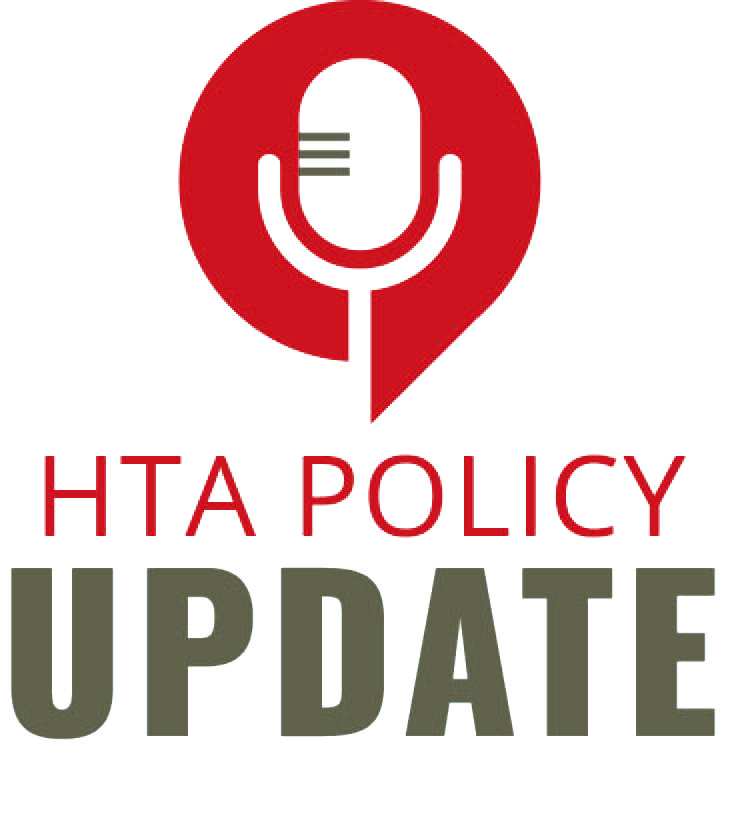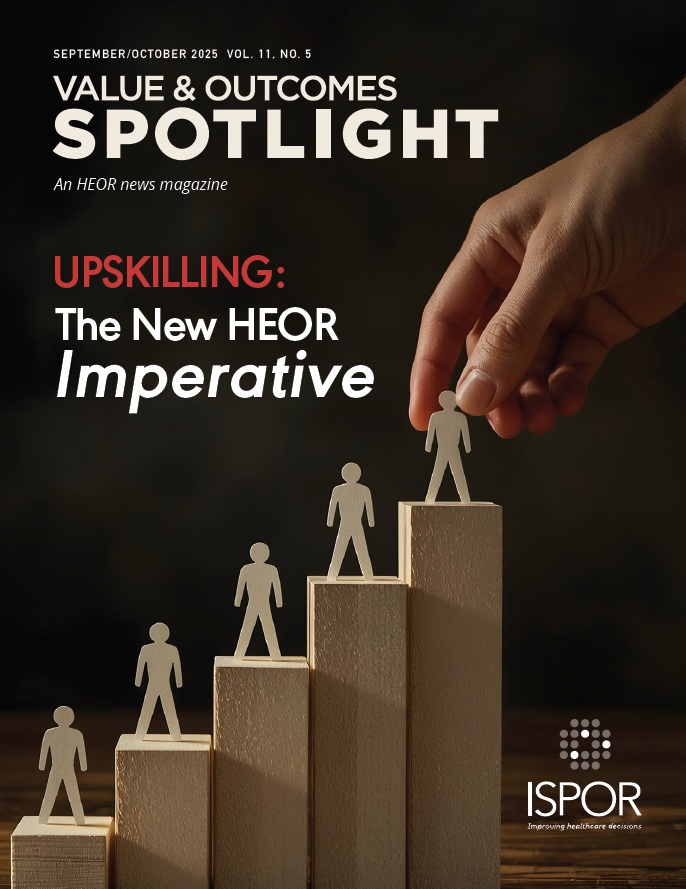HTA Policy Update
 Section Editors: Sandra Nestler-Parr, PhD, MPhil, MSc; Ramiro E. Gilardino, MD, MSc
Section Editors: Sandra Nestler-Parr, PhD, MPhil, MSc; Ramiro E. Gilardino, MD, MSc
Welcome to the HTA Policy Update, which provides a brief update on notable HTA policy developments from around the globe. We welcome suggestions and guest editorials for future issues. Please contact the Value & Outcomes Spotlight editorial office with your ideas.
Emerging Trends: Artificial Intelligence in HTA
Artificial intelligence (AI) is increasingly being recognized as a tool with the potential to reshape health technology assessment (HTA). In recent months, several HTA agencies have begun to clarify how AI may support evidence generation, evaluation, and decision making.
The Canadian Drug Agency (formerly CADTH) was among the first HTA organizations globally to explore the implications of AI. In 2018, it published scoping reviews on AI’s potential applications in clinical research and evidence synthesis, highlighting how machine learning could reshape systematic review methods and data appraisal. At the time, this was largely a forward-looking exercise, but it reflected a growing recognition that AI would soon challenge traditional HTA processes. What the Canadian Drug Agency anticipated then is increasingly becoming reality today.
The National Institute for Health and Care Excellence (NICE) in England has since taken a leading role in the implementation of AI into routine HTA processes. In August 2024, NICE issued a position statement on the use of AI in evidence generation, outlining both opportunities and risks. To promote methodological transparency, it introduced the use of CHEERS-AI, a new reporting standard for economic evaluations of health interventions using AI technologies. It has also piloted its Early Value Assessment process with an AI triage tool for skin lesions. Beyond evaluations of specific technologies, NICE’s HTA Lab is exploring how generative AI can assist in economic modeling and evidence assessment.
Other European agencies are also active in considering how AI can be integrated into HTA methods. The independent Institute for Quality and Efficiency in Health Care (IQWiG) in Germany has examined how AI could support systematic reviews and evidence retrieval, hosting a meeting on AI tools for information retrieval in 2024. According to a poster presented by IQWiG at ISPOR Europe 2024, they were the first agency to test classifiers for screening in literature reviews. The High Authority of Health (HAS) in France developed an assessment grid for medical devices embedding AI, and HAS continues to link its evaluations with national health data and AI strategies.
At a broader level, professional organizations are also actively engaging in this topic. ISPOR has convened a dedicated working group on AI in HTA and health economics and outcomes research (HEOR), tasked with developing methodological guidance on the responsible use of AI in evidence generation, economic modeling, and policy support. The ISPOR report “Generative Artificial Intelligence for Health Technology Assessment: Opportunities, Challenges, and Policy Considerations” explores how generative AI and large language models (LLMs) can transform the HTA process. It highlights key applications, such as accelerating systematic literature reviews, analyzing real-world evidence, and aiding in health economic modeling. While acknowledging these significant opportunities, the report also outlines critical challenges, including the risk of AI “hallucinations,” data privacy concerns, and the potential for algorithmic bias. Ultimately, the report emphasizes that AI should serve as a supportive tool for HTA professionals, not a replacement, and calls for robust ethical and regulatory frameworks to ensure its responsible and effective implementation.
While regulatory frameworks for integrating AI into HTA methods are still being developed, the advancements made to date by NICE, CDA-AMC, IQWiG, HAS, and ISPOR undoubtedly illustrate that AI is already shaping both health interventions as well as HTA methods to evaluate them. A broader debate on validation, standards, adoption, transparency, and patient engagement in the context of the appropriate use of AI in HTA will help to inform the best way forward.
Editor’s Note
The Editors of Value in Health have partnered with the PhRMA Foundation on a special Call for Papers focusing on “Artificial Intelligence in Health Economics and Outcomes Research.” Led by Guest Editors Jaime Caro, PhD, MDCM, FRCPC; Jagpreet Chhatwal, PhD; and Rachael Fleurence, PhD, MSc, this themed section will explore the role of AI technologies, with a special emphasis on the novel capabilities and applications of generative AI.
The PhRMA Foundation will recognize select papers from early career researchers for a PhRMA Foundation Challenge Award of $5000, which will be awarded to the first author of the award-winning papers. The complete collection of these AI-focused papers will be published in the November 2025 issue of Value in Health. Watch the Value in Health website for the forthcoming publication!

